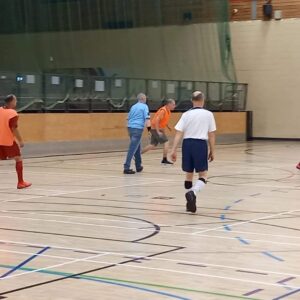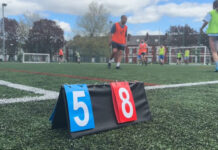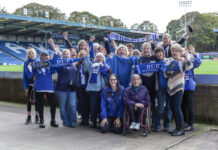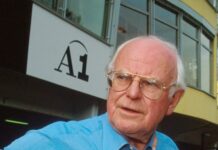A Liverpool-based charity for people with a learning disability has called for greater visibility and accessibility within disability sport in the region.
Mencap Liverpool provide opportunities for people with learning disabilities through advice, employment services, training, and sport and physical exercise activities.
CEO Carolyn McConnell says this enables the people they work with to “survive and thrive.”
She said: “The people that we start to provide support to our come into our world are often in periods of crisis; that can be a whole range of different things, or just very socially isolated.”
Now, the charity has highlighted the need for more awareness, visibility, and accessibility in sport for those with disabilities around Liverpool.
Recently, Paralympian Beth Munro told MerseySportLive that she “never really saw anything that was advertised.”
“But it is getting better; maybe it just needs a bit more,” she added. “Years back, when I was growing up it probably wasn’t as prevalent.”
Sports such as football, tennis, and dance are some of the most popular sessions at Mencap Liverpool, for both the physical and social aspects.

Nadine Jones is the Progression Coordinator at Mencap Liverpool and works with members to see if they are achieving any goals, and how they can be best supported.
She said: “Local places don’t just need to be physically accessible. They need to be accessible in every way for people to navigate their way around.
“Maybe it starts with more training for people working in the sport sector to be able to be more inclusive… It just takes one bad experience to really hinder someone’s progress and confidence.”
Greenbank Sports Academy
One place where inclusivity is at the forefront in Greenbank Sports Academy, a charity run by – and for – disabled people, and is where Mencap Liverpool groups participate in some of sports activities.
Mark Palmer, who has been the Sports Development Manager at Greenbank for over 20 years, said: “I can definitely see the improvements in terms of equality and diversity, but there’s never enough.
“The reason there’s never enough is because we’re still identifying the fact that there’s inequalities within disability sport and opportunities for disabled people to be able to participate in sport.”
Mr Palmer is a former Paralympian himself and represented Great Britain in Table Tennis at Sydney 2000.
Liverpool has one of the highest proportions of disabled people in local authorities – 23.8% – according to the 2021 census.
Mr Palmer is a Disability Equality Panel Member on the Liverpool City Region Combined Authority and wants to use his experiences to affect change.
“Like everything in the world of disability, it can take a long time to have an influence, to affect policies, and actually make policy makers listen and understand where you’re coming from,” he said.

Within the region, Mr Palmer said that there is a need for disability services and sports to work more collaboratively: “There’s loads of opportunities and good work that’s going on; sometimes we don’t speak about it enough to showcase that.
“If there’s one thing that you’d like to see, it’s working together more to push the world of sport and the need for more sports facilities, clubs, and equipment.”
The importance of sport and physical health
Mencap Liverpool’s work in sport involves exploring what barriers are in place; what is preventing their members from getting involved, and what is preventing a community group from inviting people into that space.
Ms McConnell emphasised that this was not only important for those looking to participate in the sport themselves, but also for travelling to, enjoying, and learning about sports events.
“People with a learning disability are not always seen, they’re not always visible in communities,” Ms McConnell said.
Sport and health is vital to people with a learning disability, whose median age of death is 20 years younger than that of the general population.
“The more we can do to support people to lead healthy lives, take sport, just exercise, go for walks, all those other things that lots of us take for granted, the more that particular taboo will be challenged,” Ms McConnell added.
Featured images via Mencap Liverpool with permission.















